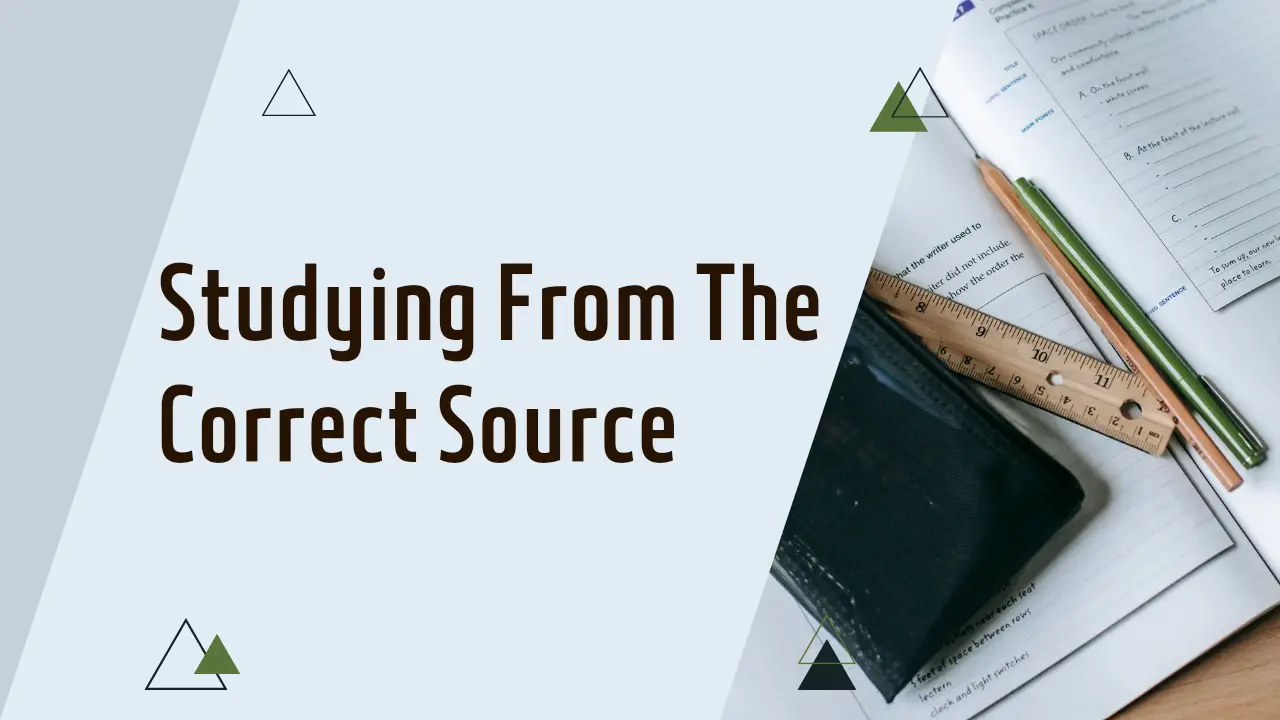Table of Contents
- Introduction
- The Significance of Studying From The Correct Source
- The Risks of Studying From Incorrect Sources
- Importance of Fact-Checking Information
- Identifying Reliable Sources
- Peer-Reviewed Articles
- Academic Books
- Government Publications
- Educational Websites
- Avoiding Biased Sources
- Checking the Date of Publication
- Evaluating the Credibility of Sources
- Keeping up with the Latest Research
- Using Multiple Sources
- Utilizing Online Tools
- Understanding Plagiarism
- Asking for Guidance
- Note-Taking
- Keeping a Bibliography
- Conclusion
Introduction
In today’s digital age, we have easy access to an abundance of information. However, not all sources are reliable or accurate. As students, it is crucial to ensure that we are studying from the correct source to achieve academic success. This article discusses the importance of studying from the correct source and provides useful tips to help you identify reliable sources.
The Significance of Studying From The Correct Source
Studying from the correct source is essential to ensure that you acquire accurate information. Without credible sources, your learning may be hampered, leading to poor academic performance.
The Risks of Studying From Incorrect Sources
Relying on incorrect sources may lead to misunderstandings and misconceptions, negatively impacting your academic grades and overall knowledge of the subject.
Importance of Fact-Checking Information
It is essential to fact-check information you receive, especially from non-academic sources. This ensures you obtain reliable information.
Identifying Reliable Sources
To identify reliable sources, you should look for sources that are written by experts in the field. These sources are typically published in academic journals, books, or reputable websites:
💡Peer-Reviewed Articles
Peer-reviewed articles are written by experts in the field and have undergone critical evaluation by other experts. These articles are a reliable source of information.
💡Academic Books
Academic books provide extensive information on a subject and are written by experts in the field. These books undergo a review process before publication, ensuring their accuracy.
💡Government Publications
Government publications are a reliable source of information, especially on current issues, statistics, and research.
💡Educational Websites
Educational websites such as those belonging to reputable universities, scholarly institutions, and research centers are an excellent source of reliable information.
Avoiding Biased Sources
It is important to avoid sources with biased opinions as they may present a one-sided view of the subject, leading to inaccuracies and misunderstandings.
Checking the Date of Publication
When using sources, it is important to check the date of publication. Information may become outdated over time, and it is important to ensure that you are studying the most current information.
Evaluating the Credibility of Sources
When evaluating the credibility of a source, look for the author’s credentials, the source’s purpose, and whether the information presented is supported by evidence.
Keeping up with the Latest Research
Academic research is continually evolving. It is essential to keep up with the latest findings in your area of study to stay updated and well-informed.
Using Multiple Sources
Using multiple sources allows you to gain a broad understanding of the subject matter and identify any inconsistencies in the information presented.
Utilizing Online Tools
Online tools such as Google Scholar, Scopus, and JSTOR allow you to search for academic articles and books, ensuring you find reliable sources for your study.
Understanding Plagiarism
Plagiarism is a serious academic offense that can result in disciplinary action. To avoid plagiarism, it is important to cite your sources properly and ensure that you are not copying or paraphrasing information without giving credit to the original source.
Asking for Guidance
If you are unsure about a source’s credibility, ask your professor or tutor for guidance. They can provide you with valuable feedback and recommend additional sources.
Note-Taking
Taking notes is a crucial aspect of studying. Ensure you note the source of information to avoid plagiarism and enable you to cite it correctly in your assignments.
Keeping a Bibliography
Keeping a bibliography of the sources you have used can help you avoid plagiarism and ensure that you are citing your sources properly.
Conclusion
Studying from the correct source is crucial to achieve academic success. By identifying reliable sources, fact-checking information, avoiding biased sources, evaluating sources, keeping up with the latest research, using multiple sources, using online tools, asking for guidance, and note-taking, you can enhance your learning experience and achieve your academic goals.

Leave a Reply